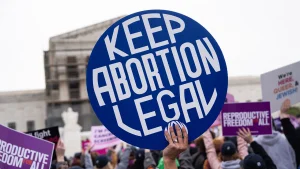The concept of a “get-out-of-jail-free card” evokes images of Monopoly games and childhood dreams of escaping consequences. However, when applied to the complexities of the real-world justice system, it raises profound ethical, legal, and societal questions. Determining who, if anyone, deserves immunity from legal repercussions requires careful consideration of various factors, including the nature of the offense, the circumstances surrounding it, the individual’s history and potential for rehabilitation, and the broader impact on society. While granting such immunity might seem appealing in certain scenarios, it risks undermining the principles of justice, equality, and accountability that underpin our legal systems. Conversely, rigidly adhering to a strict interpretation of the law can sometimes result in unfair outcomes, particularly in cases where extenuating circumstances mitigate culpability. Navigating this intricate terrain demands a nuanced approach that balances individual circumstances with the need to maintain social order and uphold the rule of law.
One could argue that individuals acting in self-defense or the defense of others might warrant consideration for a “get-out-of-jail-free card.” The legal principle of self-defense recognizes the inherent right to protect oneself and others from imminent harm. However, the application of this principle often hinges on the proportionality of force used and the imminence of the threat. If an individual genuinely believes they or another person are in immediate danger of serious bodily harm or death, and they use a reasonable amount of force to neutralize the threat, a strong case can be made for their exemption from criminal liability. Similarly, individuals compelled to commit illegal acts under duress or coercion might be considered deserving of leniency. If someone is forced to participate in a crime under threat of violence or harm to themselves or their loved ones, their culpability is significantly diminished. However, proving coercion can be challenging and requires thorough investigation to differentiate it from willing participation.
Another category of individuals whose situations merit careful examination are those who commit crimes while experiencing a severe mental health crisis. If an individual is suffering from a debilitating mental illness that impairs their judgment and understanding of their actions, their criminal responsibility can be significantly reduced or even negated. This is based on the principle that individuals should not be held accountable for actions they cannot control or understand due to a mental health condition. However, determining the extent to which mental illness played a role in a crime requires careful evaluation by mental health professionals and consideration of the individual’s treatment history. Simply claiming mental illness does not automatically qualify someone for immunity; a rigorous assessment is necessary to establish a genuine link between the illness and the criminal act.
Furthermore, the concept of restorative justice offers a potential avenue for individuals to earn a form of “get-out-of-jail-free card” by actively taking responsibility for their actions and making amends to the victims and the community. Restorative justice programs focus on repairing the harm caused by crime through dialogue, restitution, and community service. By actively participating in these programs, offenders demonstrate remorse, empathy, and a willingness to make amends, which can be seen as a form of earning their way back into society’s good graces. While restorative justice may not entirely absolve individuals from legal consequences, it can offer alternative pathways to traditional punishment, especially for first-time offenders and those who commit non-violent crimes. This approach emphasizes rehabilitation and community reintegration over punitive measures.
It’s also worth considering the issue of juvenile offenders. Children and adolescents are still developing their cognitive abilities, moral reasoning, and impulse control. Recognizing this developmental immaturity, the juvenile justice system generally emphasizes rehabilitation and reintegration over punishment. While serious crimes committed by juveniles may still warrant legal consequences, there is a greater emphasis on providing opportunities for education, therapy, and skill development to help young offenders turn their lives around. Granting a complete “get-out-of-jail-free card” to all juveniles, regardless of the severity of their offenses, would be problematic. However, a system that prioritizes rehabilitation and recognizes the potential for change in young people can be seen as a form of leniency that acknowledges their developmental stage and offers hope for a better future.
Ultimately, the question of who deserves a “get-out-of-jail-free card” is a complex and nuanced one with no easy answers. While there are compelling arguments for granting leniency in certain circumstances, such as self-defense, duress, severe mental illness, and for juvenile offenders, it is crucial to maintain the integrity of the justice system and ensure accountability for criminal acts. Blanket immunity for any group would undermine the rule of law and create a sense of injustice. A fair and equitable justice system requires a careful balancing act, considering the individual circumstances of each case while upholding the principles of justice, equality, and the protection of society. Moving forward, ongoing dialogue and careful consideration of these complex issues are essential to ensure that our legal systems are both just and effective.










